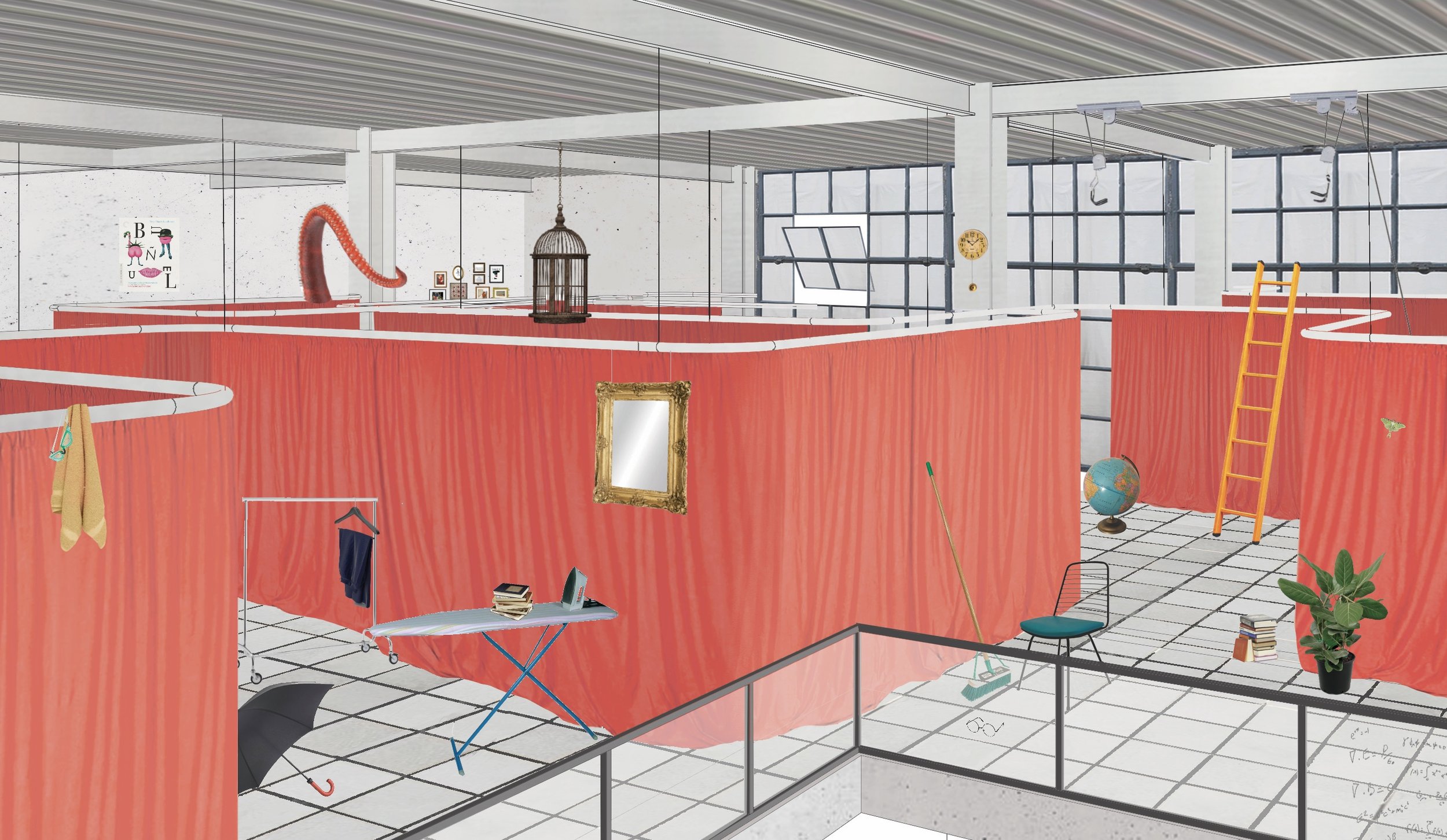fourthspace: A Journey to Real and Imagined Places
Year: 2020
In the years following the height of the pandemic, we continue to face the challenges of contemporary life including the precarity of employment, shifting domestic duties, social alienation, and the housing market’s collapse. These challenges manifest spatially as we outgrow conventional spatial norms and the activities they historically accommodated. When our inherited spaces fail to adapt to evolving ways of life, we must generate new typologies and prototypes for staging contemporary life. Debord’s Society of the Spectacle, offers a framework for comprehending how society has reshaped human existence into a world dominated by images, encouraging an active departure from these prescribed paths.
If traditional spatial typologies are outdated then so is the role of the traditional architect. In fourthspace, the designer becomes programmer, adjusting feedback loops and spatial actors within a program matrix. Input codes generate new spatial capabilities and functions, reconfiguring the typical office plan. Architecture functions as an operating system, creating dynamic programming through a multi-nodal infrastructure space. This process relies on participatory design, systems thinking, and tactile urbanism. The resulting spaces speculate moments of displacement, surrealism, hyperreality, chance, and surprise. Fourthspacing emerges as an act of subversion, guiding us through collective consciousness, where the curtain is drawn, and the back door is left unlocked.
Theorist Randall Packer describes a space that is a "fluid matrix of potentiality and realizable connections to the most far-reaching remoteness. It is a hyperspace where spatial trajectories have no boundaries, where temporal relations are amorphous, where wormholes reveal pathways that are instantaneous and geographically dispersed. It is a multifarious web of connections for all who inhabit and explore and share its dimensions. The laws of the known world have been all but abandoned in the (fourth)space: it is a space of invention and possibility, like lucid dreaming, where participants might assume their avatar identities, engage in post-human, cyborgian manifestations, or perhaps reinvent the world in the image of their own making."








